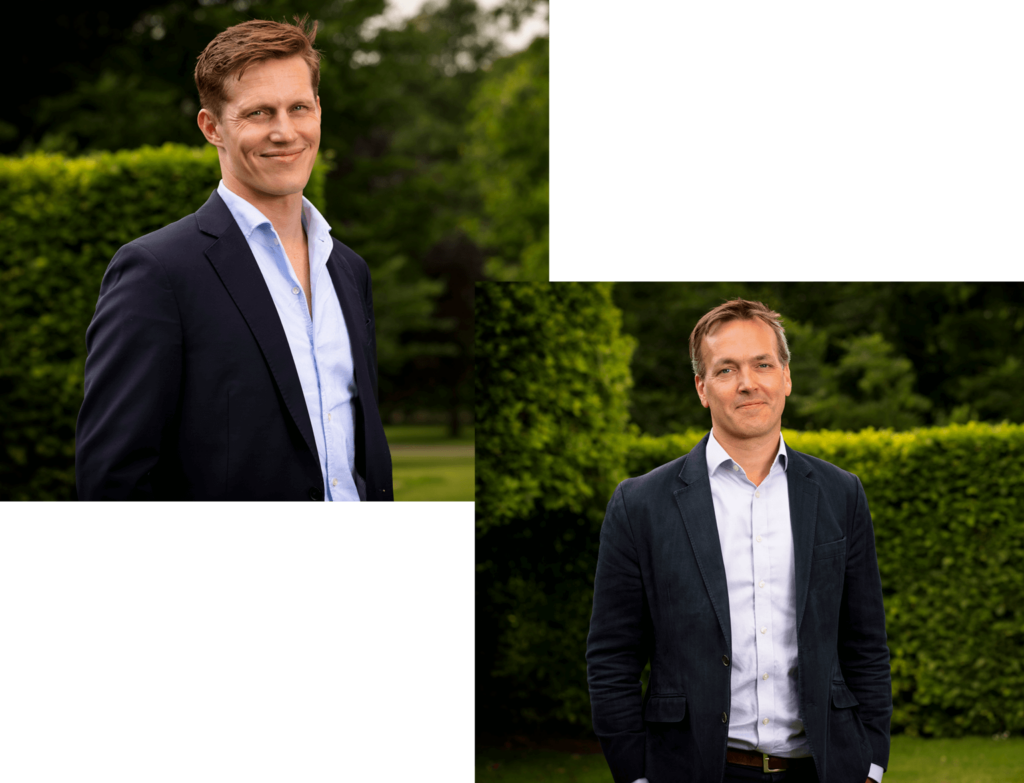Frequently asked questions
We’ve collated a list of the questions financial advisers often ask us. If you can’t see your question below, please send it through, we’d love to answer it.

Locate your question quickly using the section links below or scroll down to view all FAQs.
About Tribe
Tribe is the UK’s first dedicated impact wealth manager. 100% of Tribe’s investments are sustainable. We only run portfolios for positive, sustainable impact. While some wealth managers offer impact investing as a small part of a broader portfolio, we invest solely in businesses working for the benefit of society and the planet.
We’ve been running our sustainable impact MPS since inception – November 2016. We approached the FCA prior to authorisation and explained to them we’d be talking to our clients about both financial and environmental/social outcomes from their portfolio. As a result, they invited us into their “innovation hub”, where they were able to scrutinise our sustainable investment analysis and reporting. We’ve been actively engaged with the regulator and their initiatives in sustainable investing ever since.
Sustainability is at the core of everything we do, from our mission as a business, to our operations, through to our offering to our clients. We’re a Certified B Corporation and in September 2019 we were one of the first wealth managers globally to declare a net zero target across our Scope 1, Scope 2 and Scope 3 emissions by 2025. Our twin-lens approach (two CIOs) ensures 100% of our investments are managed with an aim for both financial returns and impact returns.
We partner with advisers with the aim of helping them protect and grow their businesses by providing the most suitable sustainable solution for their clients. Whether it’s an adviser’s first interaction with impact investing or they’ve been on the journey for a while – we provide brochures, factsheets, webinars, events and more to ensure our advisers are equipped to speak confidently to their clients about investing their capital for the change they want to see in the world.
No, we don’t offer financial planning at Tribe. We focus solely on impact wealth management. We work with our advisers to offer a sustainable impact MPS solution for people wanting to generate positive impact with their invested wealth.
As the UK’s first dedicated impact wealth manager, advisers are assured the sustainable MPS they’re providing their clients is authentic. Our “twin-lens” approach (chief investment and chief impact officers) screen every investment for its financial and impact credentials. We provide advisers with monthly market and impact stock stories, annual SDG performance reports and regular opinion and thought leadership on investment and impact topics. We also offer a diverse events programme from informal lunch and learns to co-hosted webinars with our extended network.
Our investment philosophy centres on the belief that a long-term focus across all asset classes will deliver the most favourable returns for investors, as well as people and planet. We therefore look for well-run businesses solving big social, environmental and economic challenges. These are businesses we believe will succeed in the future and aren’t just aware of the ESG risks in their operations, but are actively looking to maximise the opportunities in them. Beyond the business operations, their products/services are actively addressing major global challenges. We’re able to identify these businesses using the UN SDGs – the “north star” of our investment framework.
We use actively managed, daily traded, liquid UCITS strategies in the SIMPS model portfolios. All funds in the SIMPS are selected by our investment and impact teams based on their financial merits and positive social and environmental abilities. We believe active management is the most effective approach for risk management and sustainable impact identification. Passive strategies tend to rely on third party data, have low stakeholder engagement and action on important company disclosures, and can be limited by blind index tracking.
Sustainability selections
Certified B Corporations, or B Corps, are companies who meet high standards of social and environmental performance, transparency and accountability. We’re a proud certified B Corp which means everything we do balances purpose and profit.
The United Nations Sustainable Development Goals (UN SDGs) are the blueprint to achieve a better and more sustainable future for all. They address the global challenges we face, such as poverty, inequality, climate change, the energy transition, peace and justice, to name a few. There are 17 interlinked SDGs (Global Goals).
We use the SDGs as a framework for understanding the values of our clients and to measure, and report on a portfolio’s impact performance. The SDGs are the “north star” of our investment process and help those who invest with us to identify the impact they wish to create in the world.
Ethical investing is a type of investing that applies negative screens to screen out controversial industries. ESG investing predominately looks at the operations of a company and the potential environmental, social and governance risks associated with the way they operate. Impact investing applies negative screens, assesses ESG risks but also looks beyond to the products/services to ensure they’re working to solve major global challenges, not contributing to them. A company can have a high ESG score and have products/services contributing harmfully to society or the environment.
No. Every investment is assessed for its investment credentials, as well as its impact credentials via our “twin-lens” approach. Impact investing adds impact returns on top of financial returns. We benchmark ourselves against an industry benchmark – ARC PCI (Asset Risk Consultants Private Client Indices).
Screening & fund engagement
The SIMPS strategy is based on actively managed asset allocation across equities, fixed income, alternatives and cash. The portfolios aim to achieve capital appreciation whilst reducing investment risk via a diversified, multi asset class portfolio. This is similar to many other MPS offerings. Where we differ is we only invest in funds which align with our investment philosophy; businesses that avoid controversies, are well run and are working to solve global challenges.
The SIMPS strategy is based on actively managed asset allocation across equities, fixed income, alternatives and cash. The portfolios aim to achieve capEach underlying holding in all the third-party funds we hold has been approved by both the impact and the investment due diligence teams. We have a detailed scoring system when conducting our fund due diligence and the analysis is equally weighted in terms of impact and investment and there are certain minima that must be met to qualify. Both CIOs have a right of veto over the other if the fund doesn’t meet either team’s criteria. This twin-lens approach is additive to our selection process as it allows us a further level of scrutiny when monitoring funds, acting as a good indicator of any underlying changes that wouldn’t be picked up by typical financial analysis.
We’re unique in that we have a twin-lens investment process where we assess both impact rationale alongside financial rationale. We don’t just employ negative screens, rather, every investment decision is made through our investment and our impact lens. The investment process is set up so that each team (investment and impact) has a right of veto over the other. This means an investment can be rejected if it fails to meet our stringent impact criteria and vice versa (and this does happen). We engage with our fund managers regularly which keeps them accountable for their investment mandates and stated sustainability targets. If we identify any mission drift or change in ability to properly engage with underlying companies, we’re active in conversation and divestment away from those funds.
We consistently work with our fund managers to improve impact performance and reporting. We review all underlying holdings quarterly alongside our active fund impact performance review process which investigates both the positive and negative potential for impact embedded in our fund universe. This active review process allows us to compare potential impact trade-offs within our funds and is useful for follow-up engagement with our fund managers. More on our ownership and engagement can be found in our annual SDG reports.
We use Environmental, Social and Governance (ESG) criteria as a starting point to assess the risks within a company and its core products/services, whilst screening out companies involved in serious controversies. We then go beyond a company’s ESG rating with an in-depth fund manager due diligence process that provides us with information on each fund’s strategy, performance and engagement with their holdings. Every fund manager we work with has exclusion policies in place to minimise exposure to controversial industries. We track the underlying fund holdings closely to ensure these policies are being observed and we’re made aware of any issues.
We hold a 0% tolerance for direct exposure to alcohol, armaments, tobacco, gambling, adult entertainment, genetically modified organism (GMO) crops and coal, oil and gas extraction. We hold small tolerance levels for indirect exposure to some controversial industries, like oil and gas, 5% or less, allowing only a small proportion of (indirect) revenue to come from those activities.
We don’t directly invest in oil and gas companies. We hold small tolerance levels for indirect exposure to some controversial industries, like oil and gas, 5% or less, allowing only a small proportion of (indirect) revenue to come from those activities; for example when a company has part of their electricity generation mix coming from these sources. It’s important to note that we set a tolerance of 5% at portfolio level and only tolerate those companies with clear and credible low carbon transition pathways in place.
We engage with fund managers on their impact measurement and reporting metrics, their investment policies, exposure to controversial industries, as well as their approach to proxy voting and climate/ESG related resolutions. We report on our fund engagement in our annual SDG performance report.
We report on portfolio SDG alignment, carbon measures, as well as impact metrics including healthcare, financial services, renewable energy, jobs, waste and gender. We don’t use impact calculators or extrapolate our data – we only report on what we can evidence.
SIMPS particulars
Advisers can access the SIMPS portfolios via the following platforms: 7IM, abrdn wrap, M&G Wealth, Nucleus, Quilter, Transact, Aegon, Aegon ARC. Please contact the advisers team for more information.
The Tribe annual management fee is 0.25%. Additional Operating Cash Flow (OCF) and Markets in Financial Instruments Directive II (MiFID II) total charges apply. VAT is not applicable. The performance we show on the monthly factsheets is net of fees, and doesn’t include VAT after 28/02/2022.
abrdn wrap, Aegon, Aegon ARC, Aviva, M&G Wealth, Nucleus, Quilter, Transact, True Potential, 7IM. If you don’t see your platform of choice, please get in touch with our adviser team as we regularly update our platform partnerships.
Yes, the SIMPS portfolios have been risk rated by Dynamic Planner and Defaqto. We also use ARC Conservative, Balanced, Steady Growth and Equity Risk benchmarks depending on the relative-risk alignment to each model portfolio. We believe impact investing is just good risk-adjusted investing and can be benchmarked against the market.
Yes, the SIMPS range is on FE Analytics. You can use FE Analytics to request access to the SIMPS where you’ll be able to see investment and impact performance information and compare against other MPS solutions. Please contact our adviser team for access or to speak about the SIMPS range further.
Still got a question?
Let us know. Send your question to our advisers team via the link below.

